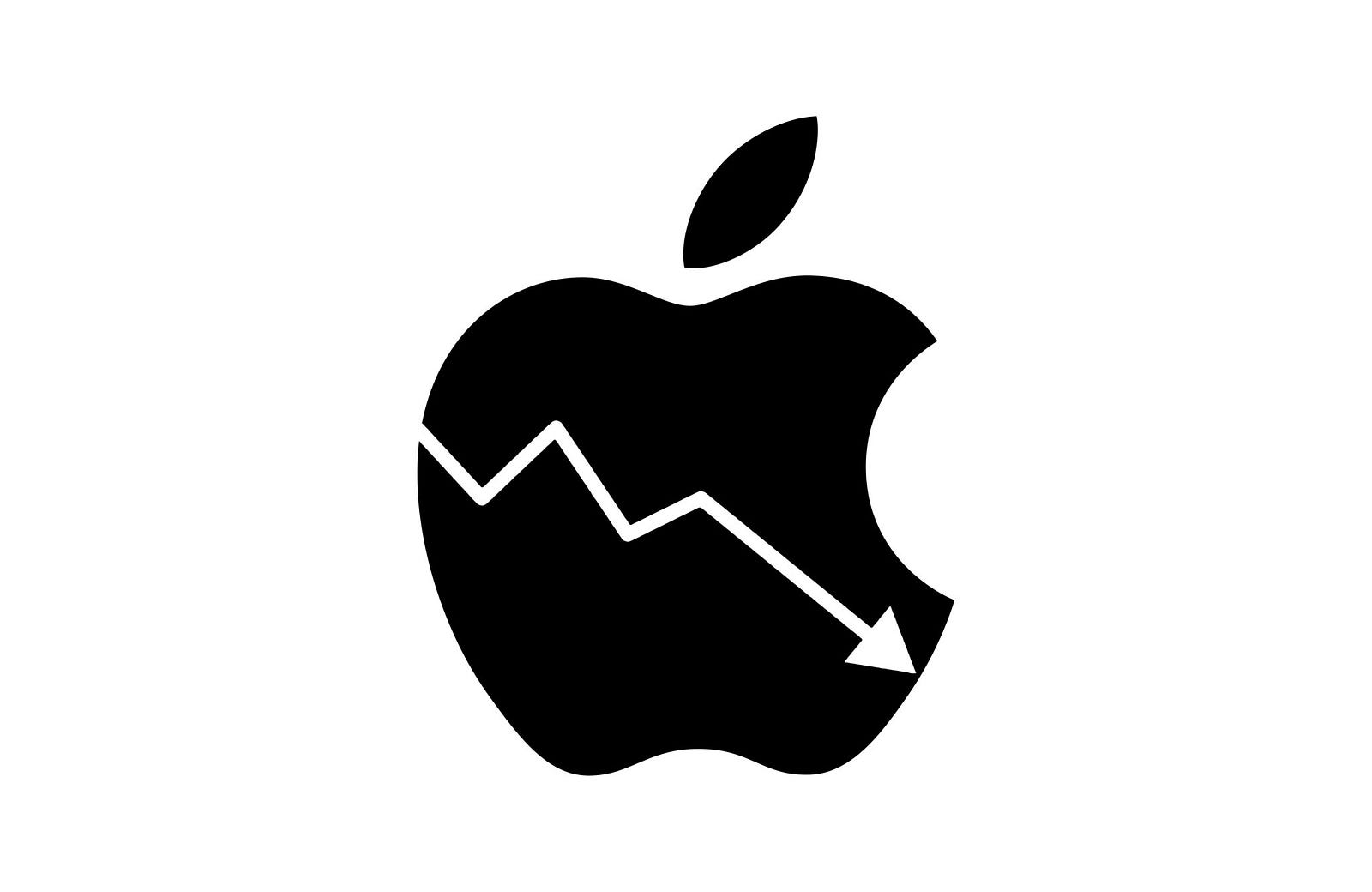U.S. Stock Markets Limit Losses, Tech Stocks Under Pressure

The U.S. stock markets continue to face significant pressure, with tech giants like Apple and Nvidia experiencing substantial declines. At the same time, the DAX has hit its lowest point since February, and Bitcoin has seen a slight recovery from its recent plunge. This article delves into the details of these market movements, the underlying causes, and the broader implications for investors.
Fear of Recession Drives Sell-Off in Tech Stocks
The ongoing sell-off in tech stocks on Wall Street is primarily driven by recession fears. The Nasdaq index, which is heavily focused on technology, dropped by more than six percent at the start of trading on Monday. However, it managed to narrow the losses to around three percent by the end of the day. Similarly, the Dow Jones and S&P 500 indices fell by over two percent, closing at 38,794 and 5,208 points, respectively. This marked a significant downturn for the markets, with the volatility index, often referred to as Wall Street’s “fear gauge,” spiking significantly.

Tech Giants Under Pressure
Tech giants have been particularly hard hit. Apple shares fell more than ten percent at one point during the trading session. This decline was exacerbated by news that Berkshire Hathaway, Warren Buffett’s investment firm, had reduced its stake in Apple by nearly 50 percent. The reduction in holdings by such a prominent investor added to the market’s anxiety. Nvidia, another major tech player, saw its shares plunge by over 15 percent. This drop was due to reports of delays in the launch of certain AI chips caused by design flaws. Nvidia managed to trim its losses to five percent by the end of the day, but the initial plunge reflected broader concerns about the stability and growth prospects of tech stocks. Microsoft and Alphabet, two other tech behemoths, also faced declines. The collective losses in market value for the “Magnificent Seven” tech companies, which include Apple, Microsoft, Alphabet, Amazon, Facebook, Tesla, and Nvidia, reached $650 billion at one point during the trading session. This massive loss in market capitalization highlights the vulnerability of tech stocks in the current economic climate.

U.S. Economic Indicators and Federal Reserve Responses
A slight relief came from the U.S. service sector, which showed growth in July according to an economic barometer. This growth helped ease some recession fears. The Federal Reserve also attempted to calm the markets. Austan Goolsbee, head of the Chicago Fed, mentioned in an interview that while there are concerns in the labor market, a recession does not seem imminent. He emphasized that the central bank is monitoring the economic indicators closely and is prepared to adjust its policies to prevent a recession.

DAX Hits February Low
Despite these reassurances, the impact of the sell-off was felt globally. The German DAX index fell 1.8 percent to 17,339 points, recovering from a low of 17,025 points earlier in the day. This marked its lowest level since February. The DAX also failed to reclaim the 200-day moving average, a key technical indicator that currently lies above 17,400 points. Over the past three trading days, the DAX has lost over six percent, reducing its year-to-date gain to 3.5 percent. The MDax, which includes medium-sized companies, also faced significant declines, dropping two percent to 23,964 points. The SDax, which comprises smaller companies, fell by 2.6 percent after experiencing a nearly six percent drop earlier in the day. Mid-sized and smaller companies are often more sensitive to economic cycles, which explains their sharper declines.

Broader European and Japanese Markets
The European markets were not spared either. The EuroStoxx 50, which includes major companies from across the eurozone, dropped by 1.5 percent to 4,572 points. This decline was part of a broader trend of falling stock prices across Europe. Investors’ nervousness, reminiscent of the early days of the COVID-19 pandemic, was palpable as they grappled with the potential for a global economic slowdown.
In Japan, the stock markets experienced an even sharper sell-off. The Tokyo Stock Exchange saw a significant decline, particularly in bank stocks and tech companies. The banking sector’s index fell by 17.3 percent, making it the worst-performing sector among the 33 industry indices tracked by the Tokyo Stock Exchange. Tokyo Electron, a major chip manufacturer, saw its shares drop by 18.5 percent. Other economically sensitive stocks, such as Fast Retailing, a major fashion retailer, also faced declines. This broad-based sell-off in Japan underscores the global nature of the current market turmoil.

Bitcoin and Oil Prices
Amid these tumultuous market conditions, Bitcoin provided a small glimmer of hope. The cryptocurrency saw a slight recovery, trading at $54,830 on Bitstamp after falling to $49,374, its lowest level since February. This recovery came after a period of significant volatility for Bitcoin, which had seen its value drop sharply over the previous days. Despite this rebound, Bitcoin remains highly volatile and sensitive to broader market trends.
Oil prices also experienced some movement. Brent crude, the international benchmark, was trading at $76.99 per barrel, up 18 cents from the previous day. West Texas Intermediate (WTI), the U.S. benchmark, increased by 8 cents to $73.60 per barrel. These slight gains followed significant increases in oil prices the previous day, driven by escalating tensions in the Middle East. The targeted killing of a senior Hamas leader by Israel in Tehran has heightened geopolitical risks, contributing to the volatility in oil prices. Both Iran and Hamas have threatened retaliation, which could further disrupt the already tense situation in the region

Broader Economic Implications
The broader economic implications of these market movements are significant. The ongoing sell-off in tech stocks, driven by recession fears, reflects broader concerns about the global economy’s health. While the U.S. service sector’s growth and reassurances from the Federal Reserve provide some comfort, the markets remain highly volatile. The declines in European and Japanese markets highlight the interconnectedness of the global economy. As investors grapple with these uncertainties, the market’s future direction remains uncertain.
The recent performance of Bitcoin and oil prices adds another layer of complexity to the economic landscape. Bitcoin’s recovery, while notable, does not negate its inherent volatility. Similarly, the slight gains in oil prices must be viewed in the context of broader geopolitical tensions, particularly in the Middle East.

In conclusion, the current market conditions reflect a confluence of factors, including recession fears, geopolitical tensions, and the inherent volatility of tech stocks and cryptocurrencies. As investors navigate these turbulent times, staying informed and adapting to changing conditions will be crucial. The market’s future direction will depend on various factors, including economic indicators, central bank policies, and geopolitical developments. For now, caution and vigilance are paramount as the global economy continues to face significant challenges.
For more information on navigating the complexities of the digital and financial world, including insights on blockchain and cryptocurrency trends, visit Blockpro.us. BlockPro specializes in helping businesses transition to Web3 with services such as tokenization, marketing, and strategic planning to ensure a successful adaptation to the decentralized space.

Comments
Post a Comment